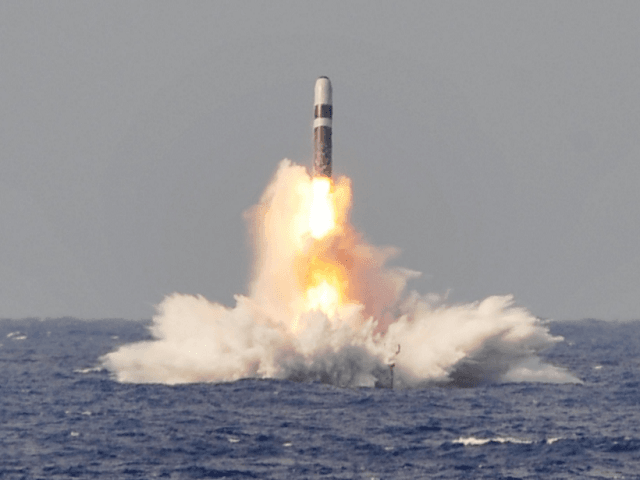Discussions are ongoing at high levels within the European Union (EU) to assume command of the nuclear weapons possessed by member states for the purpose of common European defence, according to claims published by The New York Times (NYT).
While even organising a combined European defence based on conventional forces — ships, troops, and aircraft — has proven more than the EU is politically capable of and has been a major contributing factor to the impending departure of the United Kingdom from the bloc, the claims are that a common nuclear defence system have at least been considered.
Reporting the comments of proponents of the plan, which the NYT concedes are in a “minority” in proposing the “once unthinkable” scheme, the paper quotes German and Polish politicians, but not lawmakers from France and Britain, nations that actually have the weapons. German Christian Democratic Union (CDU) party foreign policy spokesman Roderich Kiesewetter is one of those voices, and is reported by the NYT to have said, “My idea is to build on the existing weapons in Great Britain and France”, but admits with the UK leaving the Union it would mean they wouldn’t take part in his plans.
Potential developments of the theoretical discussions could see French nuclear warheads distributed across Europe, with Germany contributing to the cost of the programme, and a central European nuclear command centre established for the EU.
However, France, the only other nuclear power in Europe after the UK’s departure, would also likely be reticent to see control over their ultimate guarantor of national security signed over to Brussels. Bruno Tertrais of the Foundation for Strategic Research, who reportedly remarked of the plans, “In other times I would have told you don’t bother, there’s no story here”, was speaking out now because of European concern over the potential changing attitude towards the NATO alliance of U.S. President Donald J. Trump.
Mr. Tertrais said of the French that they would insist on keeping hold of “the final decision to use nuclear weapons”, making the scheme difficult if not impossible.
Renewed thinking about the scheme, according to a report along similar lines in the Economist on Thursday, was apparently triggered by the victory of President Trump last year, following his calls for NATO alliance members to meet the defence spending targets they had agreed to as recently as 2014 at the Wales summit.
Despite the ‘Wales Declaration on the Transatlantic Bond’ signed by member nations binding them to spend two per cent of GDP, only a handful of nations, including the United States, United Kingdom, and Poland, actually do so. Others including Germany — ironically, one of the nations most seriously concerned about a withdrawal of U.S. support for a military alliance and have consistently failed to pay into according to their treaty obligations — fail to meet the target.
Follow Oliver Lane on Facebook, Twitter: Follow @Oliver_Lane or e-mail: olane[at]breitbart.com

COMMENTS
Please let us know if you're having issues with commenting.